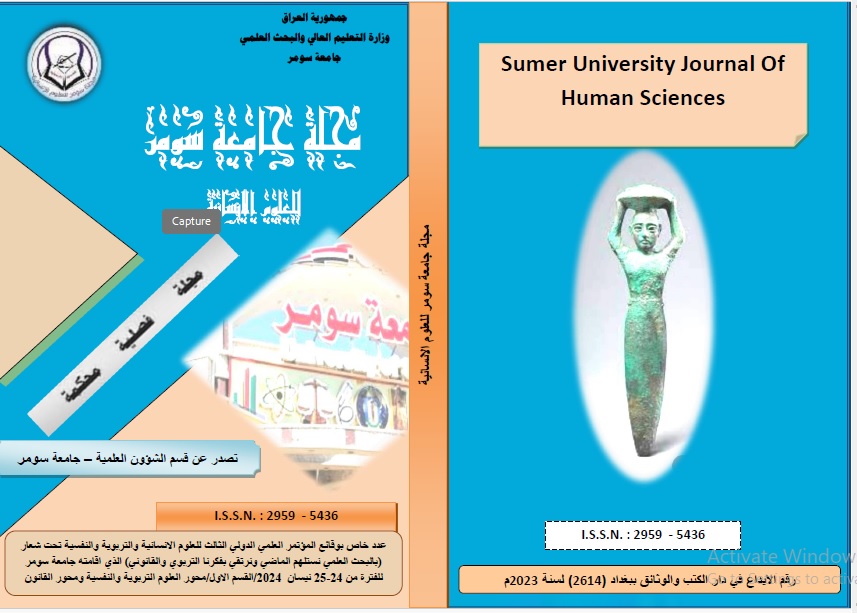The Effectiveness of a Strategy Based on Mathematical proficiency in Developing Mathematical Achievement and the Trend towards Mathematics among Secondary School Students
Abstract
The research aimed to study the effectiveness of a strategy based on mathematical proficiency in developing mathematical achievement and the attitude towards it among secondary school students. The research sample was first year secondary school students, numbering (54) students. To achieve the research objective, the researcher prepared an achievement test in mathematics consisting of (40) items. The measure of attitude towards the subject consists of (23) items, and the reliability value of the two research tools reached (80), research on students, and the researcher used the quasi-experimental method with one group with a pre- and post-test.
The results of the research showed that there were statistically significant differences at the level of significance (α = 0.05) between the pre- and post-applications on the sample of students in the achievement test and the attitude scale in favor of the post-application. There was a noticeable effect between the scores of the research sample group pre- and post-applications in the achievement test and the
trend scale in favor of the post-application. On average, and in light of these results, the researcher recommends conducting studies on mathematical proficiency on basic education students to develop mathematical thinking skills, and studies to demonstrate the impact of mathematical proficiency on other variables or other subjects, holding courses, discussion groups, and training workshops on mathematical proficiency for student teachers in colleges or teachers. And mentors in schools and secondary schools during service.


